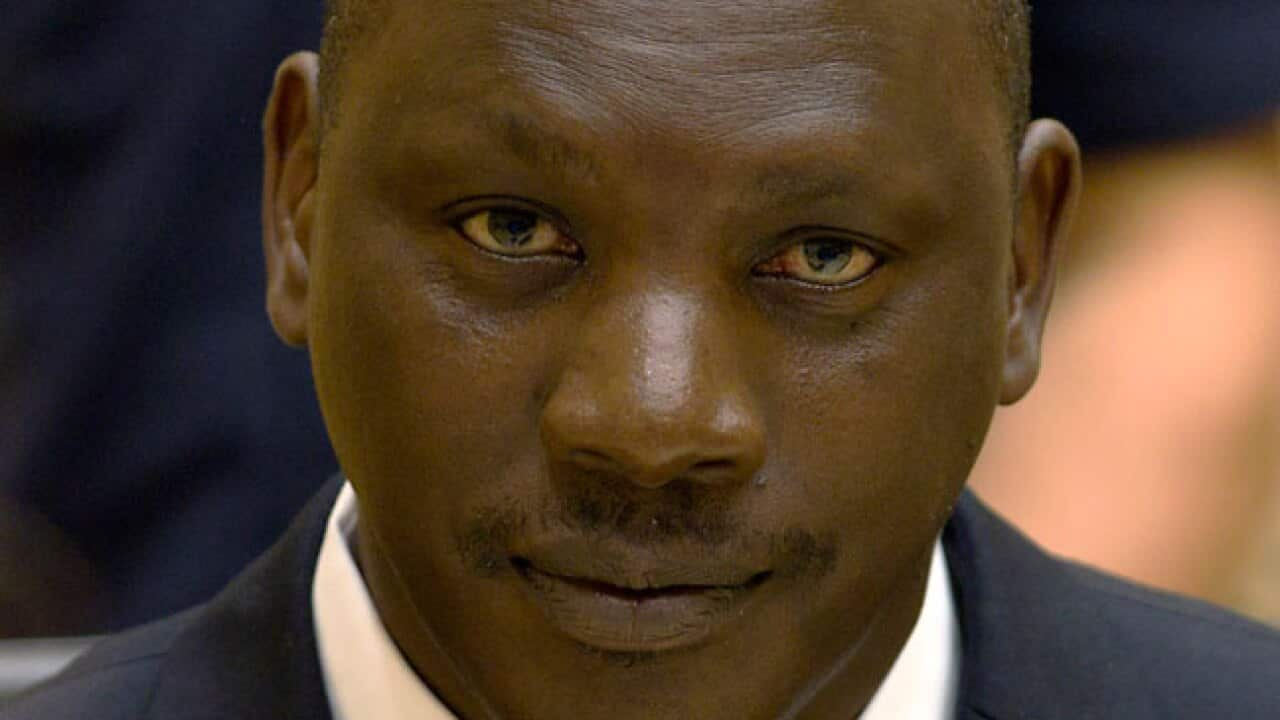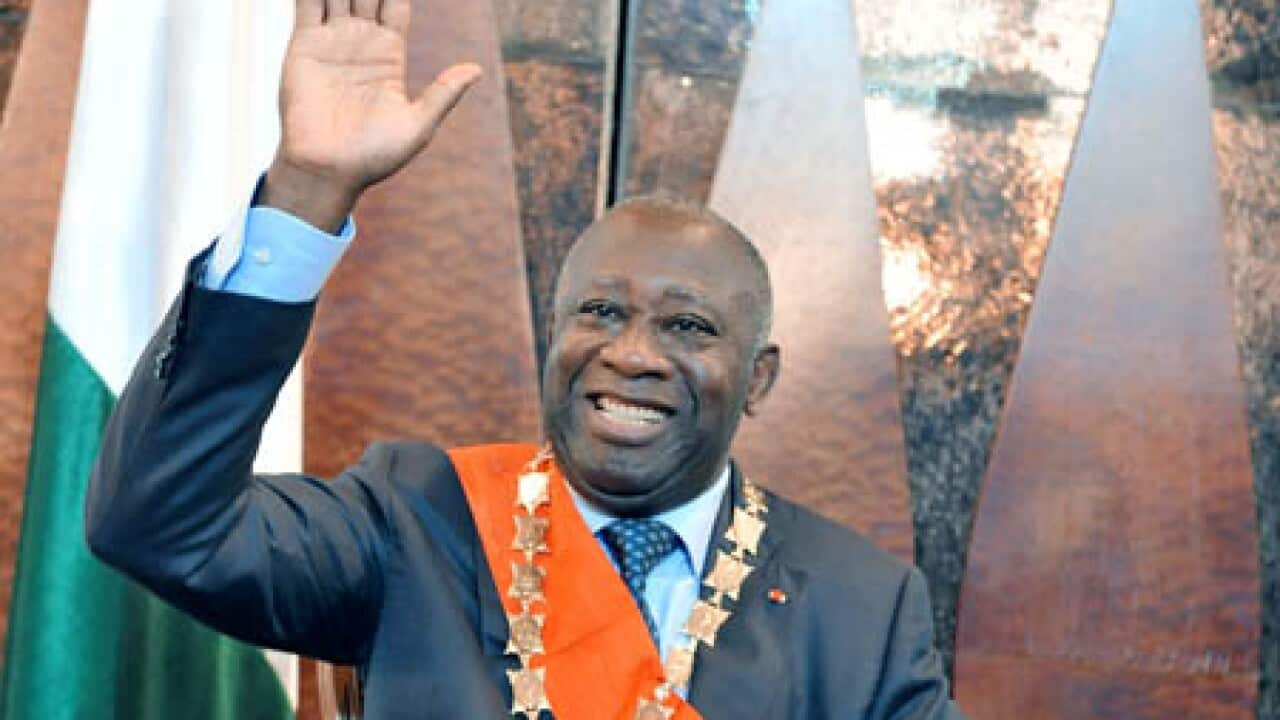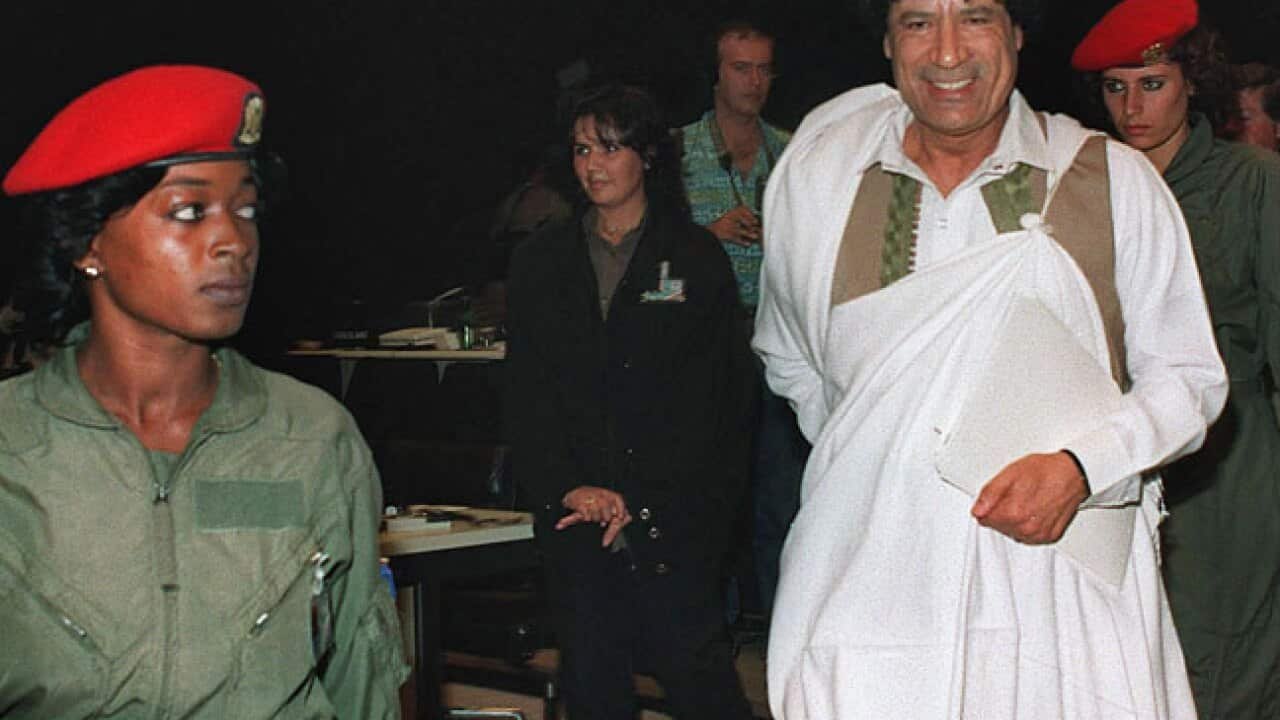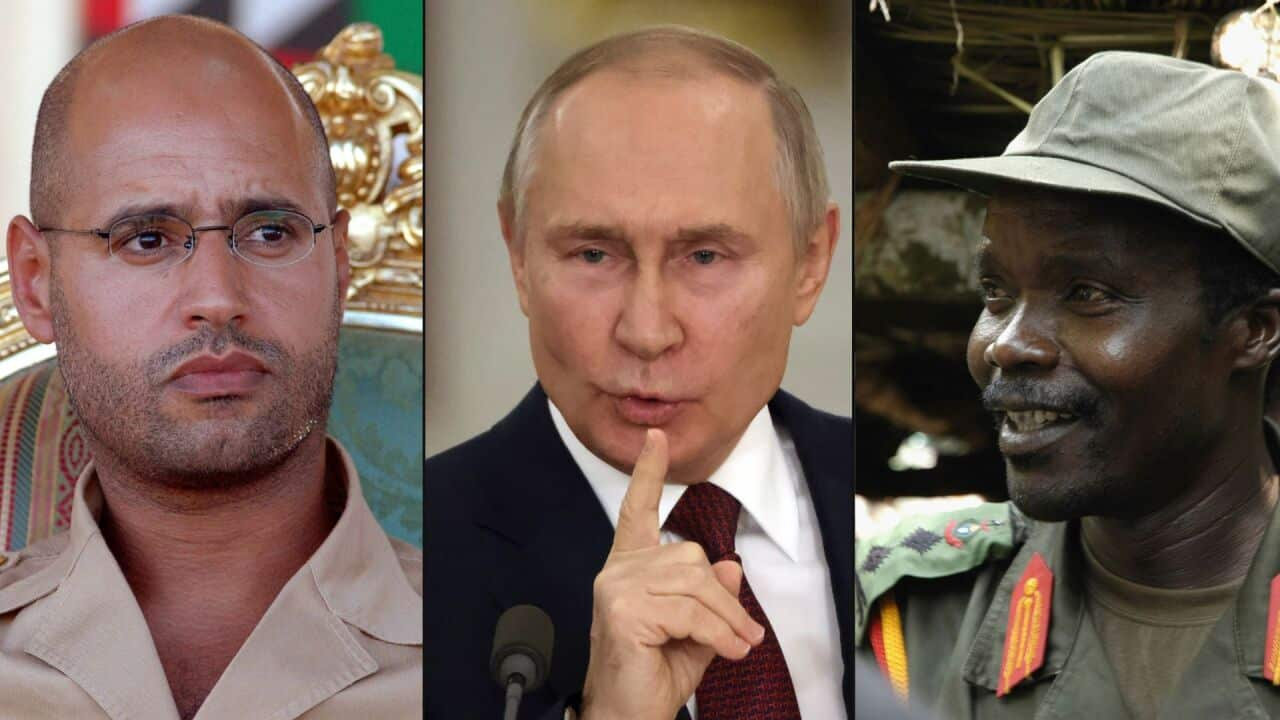Key Points
- The International Criminal Court has issued an arrest warrant for Vladimir Putin.
- The ICC issues such warrants when countries can or will not prosecute suspects.
- Russia's president is now part of a long and ignominous list of ICC targets.
Russian President on Friday became the latest high-profile figure against whom the .
Here's a look at the other big names to be targeted by the court of last resort for the world's worst crimes, when countries cannot or will not prosecute suspects, although not all of them have been detained.
Joseph Kony
The ICC issued arrest warrants for Joseph Kony and other commanders of the Ugandan rebel group the Lord's Resistance Army (LRA) in 2005 for crimes against humanity and war crimes, including the use of child soldiers and sex slaves.
But Kony has never been arrested and remains on the run.
Thomas Lubanga
In its first-ever verdict after taking up its role in 2003, the Hague-based court in 2012 sentenced Congolese warlord Thomas Lubanga to 14 years in prison for conscripting children into his rebel army in 2002-2003.
READ MORE

Profile: Who is Thomas Lubanga?
It upheld the decision on appeal in 2014. Lubanga was transferred in 2015 to Kinshasa to serve the rest of his sentence and was freed in 2020.
Jean-Pierre Bemba
Former Democratic Republic of Congo vice president Jean-Pierre Bemba was jailed in 2008 after the ICC convicted him over crimes committed by rebels under his command in the Central African Republic in 2002-2003.
But the court overturned his sentence on appeal in 2018.
Omar al-Bashir
In 2009, Sudan's ex-president Omar al-Bashir became the first serving head of state to be targeted by an ICC arrest warrant for war crimes and crimes against humanity in the western Darfur region.
Fighting erupted in Darfur in 2003 between ethnic minority rebels and Bashir's Arab-dominated government.
Two years after his fall from power, Sudan in 2021 announced it would hand over Bashir to the ICC, but the pledge has not been followed through.
Bashir has been held in Khartoum's Kober prison since his ouster.
Laurent Gbagbo
Former Ivory Coast president Laurent Gbagbo was the first former head of state to be tried by the ICC in 2016.
He was sought by the ICC over violence that rocked Ivory Coast in 2010-2011, after Gbagbo refused to recognise the result of an election where his rival Alassane Ouattara claimed victory.
READ MORE

Factbox: Who is Laurent Gbagbo?
The ICC issued an arrest warrant against Gbagbo in 2011 after the violence left thousands dead in the West African country, and he was transferred to a detention centre in The Hague.
But he was acquitted of crimes against humanity following a three-year trial and freed in 2019. Gbagbo returned to Ivory Coast in 2021 after his acquittal.
Saif al-Islam Gaddafi
Saif al-Islam Gaddafi, son of Libya's former dictator Muammar Gaddafi, has since 2011 been the subject of an arrest warrant for crimes against humanity allegedly committed during the repression of the revolt that led to his father's ouster.
READ MORE

Factbox: who is Muammar Gaddafi?
He was arrested in Libya in 2011 but is considered to be on the run as the Libyan authorities do not know the location of his detention.
His release has been announced on several occasions but confusion continues to shroud his whereabouts.
In a surprise announcement in 2021, Saif became the first heavyweight candidate to register to run for president, but his bid was rejected by the election commission.
Uhuru Kenyatta
The ICC suffered a major setback in 2014 when its highest-profile case — over former Kenyan president Uhuru Kenyatta's involvement in the inter-ethnic violence that broke out after disputed 2007 elections — collapsed.
Kenyatta, elected in 2013, reluctantly appeared before the court, the first sitting head of state to do so, but the prosecutor was forced to drop the case amid allegations of witness intimidation and bribery.
Special tribunals
Other special tribunals have convicted leaders accused of the most serious crimes.
Charles Taylor, a former Liberian president and warlord who was also involved in the Sierra Leone civil war, was in 2012 convicted by a special court to 50 years in jail for war crimes and crimes against humanity.
He became the first head of state to be convicted by an international court since the Nuremberg trials that followed World War Two in 1945 and 1946.
Former president Slobodan Milošević was arrested in 2001 and died in his cell in The Hague in 2006 while on trial for genocide, war crimes and crimes against humanity at the Yugoslav war crimes tribunal.












